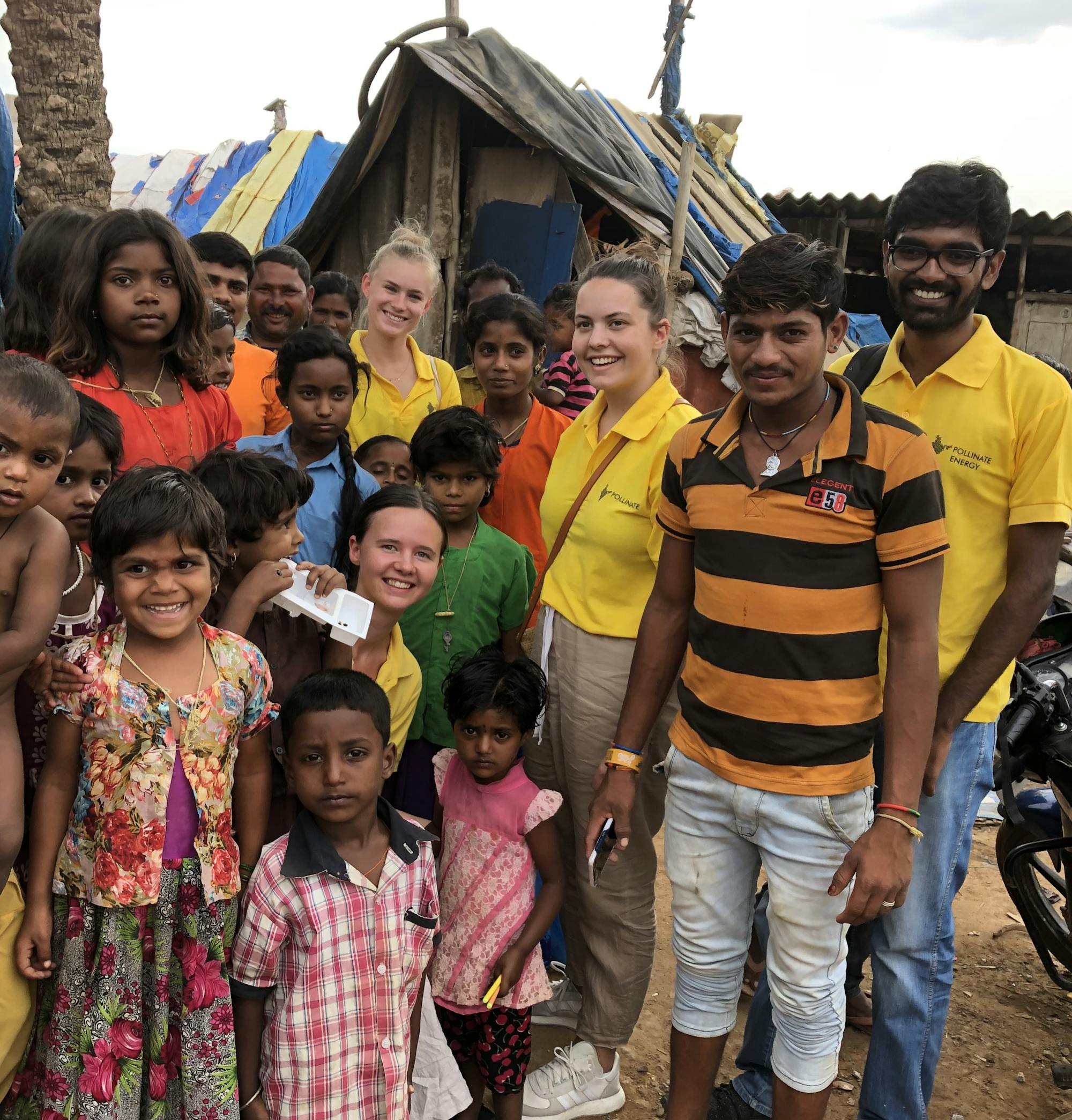Being welcomed into the homes and lives of people living in the urban slums of Bangalore, India was an incredibly humbling experience for Napier resident Natalie Fretton.
Through the McCusker Centre for Citizenship at the University of WA, Ms Fretton and fellow student Meisha Bull recently completed the three-week Student Fellowship program run by Pollinate Group – an organisation that helps empower local women out of poverty through social enterprise.
“Although individuals varied greatly in where they were from and why they were living in Bangalore, the sense of community and hospitality was universal,” the 21-year-old Albany local said.
“While at times I found the fellowship challenging and confronting, I think these experiences enabled me to really reflect on my values and belief system and to grow as a person.”
Ms Fretton and Ms Bull – who coincidently lived together at St Catherine’s College during their first year of university – worked on the Poverty Index Study, a project that used surveys with the aim to quantify the ‘material poverty levels’ of individuals living in urban slum communities throughout Bangalore.
“Our project was largely designed to enable Pollinate to better understand the needs of its customers and to be able to provide accurate information to potential/current donors and stakeholders,” she said.
“Fostering deeper understanding of the needs and desires of Pollinate customers and developing strong relationships with communities is integral to providing relevant products and mechanisms for empowerment and education.”
The Law and Society major said the experience has challenged her perspectives in many ways, and made her reconsider many of the things she previously took for granted in Australia.
“Personally, I was probably most surprised to realise the level of unconscious bias that I was taking into this experience,” she said.
“While I tried to bring an unbiased perspective into the fellowship, being in Bangalore and particularly entering the communities for the first time, made me realise the extent to which I was relying on stereotypical ideas of India as a whole and particularly those living in urban slum communities.”
Ms Fretton said Pollinate Group’s mission to improve female empowerment and self-sufficiency aligned directly with her personal and professional plans.
“Seeing the everyday challenges of a social business has been a fascinating experience and has encouraged me to pursue a career in the sector following the completion of my studies,” she said.
“I think organisations like Pollinate represent a new and exciting model for tackling multifaceted issues like poverty and a changing climate and I’d like to be a part of this in the future.”

